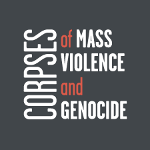Cette collection rassemble les références ou le texte intégral des publications réalisées dans le cadre du programme GENOCIDE (ERC n°283-617) dirigé de 2012 à 2016 par Elisabeth ANSTETT (CNRS-Iris). Les recherches sur lesquelles s’appuient ces résultats ont fait l’objet d’un financement du conseil Européen de la Recherche lors du septième programme cadre (FP/2007 - 2013 / ERC bourse n°283-617)
Responsables de la collection : Elisabeth Anstett - Anne-Claire Baratault
In Europe, and all over the world, mass violence and genocides have been a structural feature of the 20th century. The research programme, Corpses of Mass Violence and Genocide, that started in February 2012 and ended in January 2016, aimed at questioning the social legacy of mass violence by studying how different societies have coped with the first consequence of mass destruction: the mass production of cadavers.
What status and what value have indeed been given to corpses? What symbolic, social, religious, economic or political uses have been made of dead bodies in occupied Europe, the former Soviet Union, Bosnia, Spain but also Rwanda, Argentina or Cambodia, both during and after the massacres?
Bringing together perspectives of social anthropology, law and history, and raising the three main issues of destruction, research and identification, and return of human remains to society, this research programme has enlighten how various social and cultural treatments of dead bodies simultaneously challenge common representations, legal practices and morality.
Programme outputs have open and strengthen the field of genocide studies by providing proper intellectual and theoretical tools for a better understanding of mass violence’s aftermaths in today societies, while highlighting the social effects of a forensic turn occuring in mass violence aftermath management.
The research leading to these results has received funding from the European Research Councilunder the European Union's Seventh Framework Programme (FP/2007 - 2013) / ERC Grant Agreement n° 283-617.
